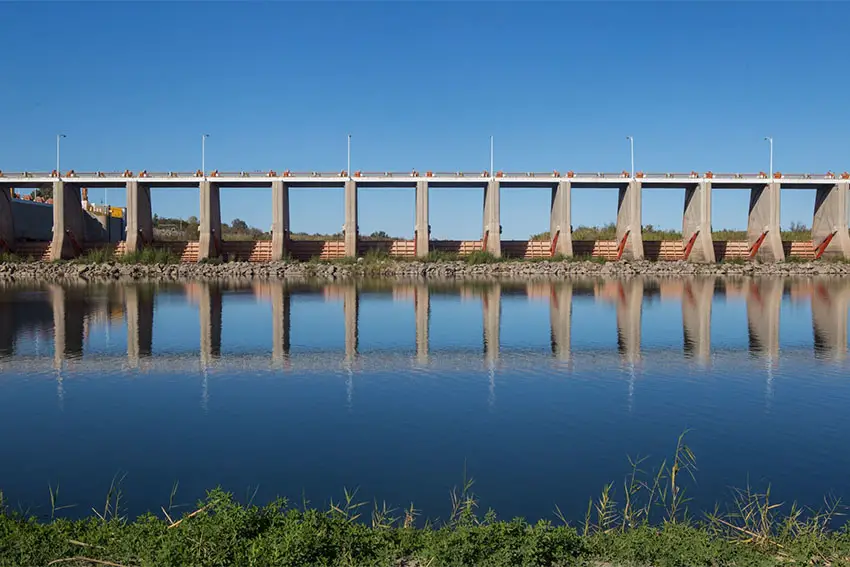The northern Mexico state of Baja California is betting on desalinization to solve the Tijuana area’s drinking water scarcity, and after five years with a planned project at a standstill, efforts to build a desalinization plant in Rosarito are finally moving forward again, according to state officials.
After two years of legal wrangling between the state government and Consolidated Water — the firm fired from the original project to build the plant — the two parties came to a resolution this summer that saw the Mexican government purchase the 201,000-square-meter parcel of land in Rosarito. The parcel, valued at just over 596 million pesos (US $30.06 million), is now owned by Mexico’s National Infrastructure Fund (Fonadin).

The dispute first arose in 2019, after the state government unilaterally canceled its contract with Consolidated Water. The company sued the state to recoup US $51 million, and as Consolidated Water owned the plant site land parcel the project came to a halt as the legal dispute lingered.
The suit was finally resolved in international arbitration this summer, and the state is now in the process of seeking bidders for the project, which would be essentially the same as the one specified in the original contract, Baja California’s Finance Minster Antonio Moreno Mexía said.
The state now plans to invest US $690 million in building the desalinization plant with a new bidder, Moreno said, adding that the boost in available water is expected to solve water scarcity problems for over 2.1 million people in Tijuana, Rosarito and southward toward Tecate city for about a decade.
Tijuana and its suburbs have expanded rapidly into urban sprawl over the last 40 years, which has exacerbated water scarcity. Tijuana presently gets most of its water from the Colorado River, which is also drawn from by cities over the border in the United States, and whose water supply, by all accounts, is shrinking.
In addition, this system requires significant energy to transport water approximately 100 kilometers (about 62 miles). The Baja California State Water Commission expects the desalinization plant to reduce electricity demand associated with water distribution by up to 36%. The new system would eliminate the need to treat the Colorado River water to make it potable, state authorities say.
The plant will be fed 8.8 cubic meters per second of seawater and is expected to produce 4.4 cubic meters per second of drinking water. Any residual salt water will be returned to the sea.
While addressing the region’s water scarcity would seem at first glance unproblematic, the project has its critics, who say that a desalinization plant should be the option of last resort, citing a negative impact on the environment and the costs of construction.
Alfonso Cortez Lara, the Director of the Mexicali Unit of the College of the Northern Border, suggested that the state government should instead invest in improvements to water distribution infrastructure.
Approximately 30% of Tijuana’s water is lost due to leaks in the system, he said.
With reports from Forbes, Zeta and El Sol de Tijuana
